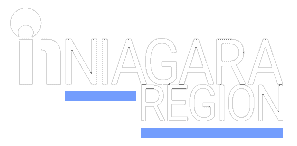So as of tomorrow, students can borrow seeds to plant in the spring and summer.
Exactly how do students “borrow” seeds that they’re planting in the ground? Turns out the program operates very much like a library. Seed borrowers are asked to later return a new batch of seeds from their gardens. With that, the program is continually perpetuating.
Almost as excited about the seed program as the two students is the library itself.
“It’s a natural fit with the borrowing services we (the library) already support,” said Andrew Colgoni, Associate University Librarian, Student Success.
“Seed libraries have been growing in popularity, particularly among public libraries, including many in the Niagara region. We’re pleased to be able to make it easy for the campus community to access a rich catalogue of seeds through our ‘Ask Us’ desk in James A. Gibson Library.”
Seed libraries are considered an effective mechanism for collecting and distributing a variety of rare, endangered, native and/or culturally important seeds, aiming to protect genetic diversity in the food system and promote public access to seeds.
To learn more about the seed library and how to participate, please check HERE

